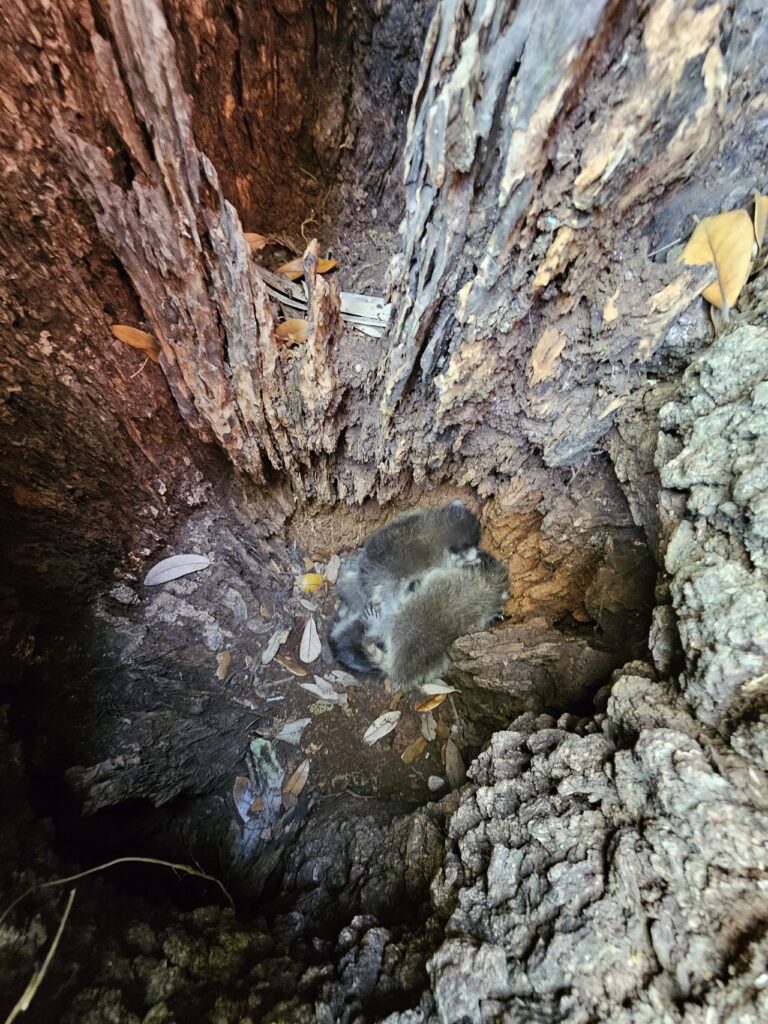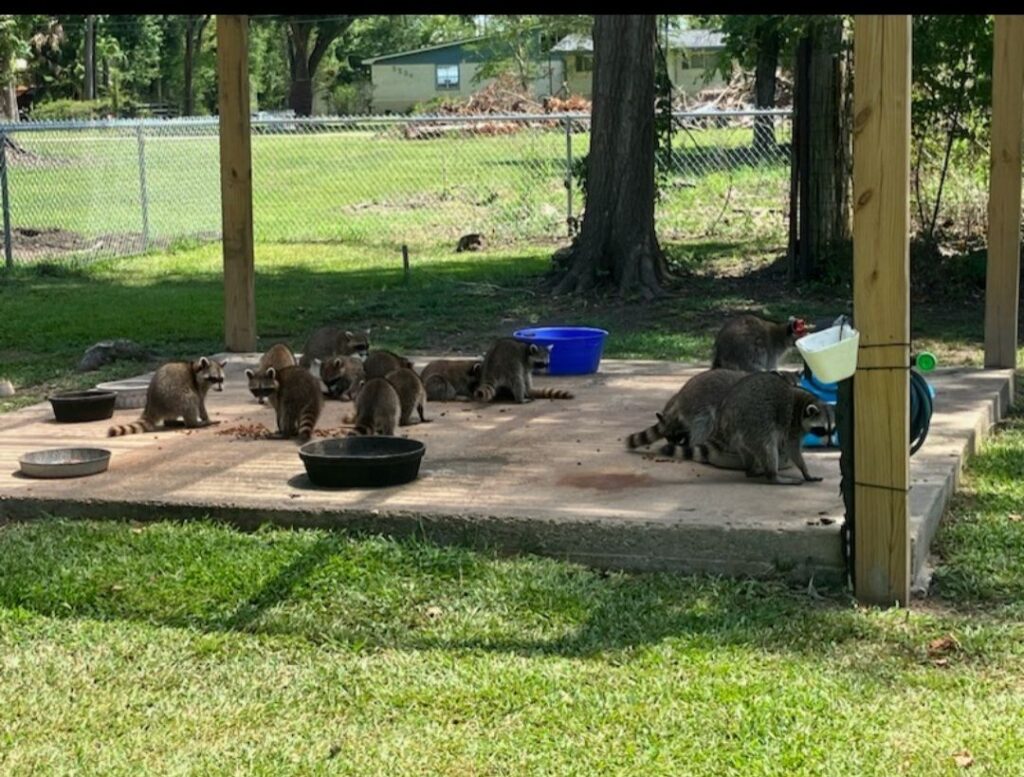In New Orleans, raccoons are most likely to be a problem for homeowners during the spring and early summer months. During this time, raccoons are particularly active as they search for food and suitable nesting sites for raising their young. Additionally, raccoons may be more noticeable in the fall as they seek out warm and secure places to shelter during the cooler months. Therefore, increased raccoon activity and potential issues for homeowners typically occur from late spring through early fall.
Where Do Raccoons Live?
Raccoons are highly adaptable and can thrive in a variety of environments as long as they have access to food, water, and shelter. You can find raccoons living in urban and suburban environments and natural habitats like the swamps and forested areas around New Orleans.
The most common areas you may find a raccoon living in your house are in the attic, inside walls, on the roof, under porches or decks, and in crawlspaces. Raccoons like to live in woodland areas near water sources such as streams, marshes, and rivers. Urban areas, farms, and suburbs also make good homes for raccoons, who have adapted to city life by learning to scavenge from garbage cans, gardens, and crop fields.


Critter Control technicians are comprehensive during the inspection to avoid missing any signs of raccoon activity. What they find will help establish their steps in removing and excluding raccoons. Specific raccoon signs include the following:
- Paw tracks that resemble human hands, with four fingers and a thumb.
- Feces are typically found in piles since raccoons like to create a latrine in their dens.
- Holes and cracks that are the right size for raccoons to enter your home.
- Smudge marks on siding, walls, floors, and anywhere a raccoon was active.
Our technicians allow their expertise to guide the inspection process.
Raccoon Trapping
Raccoon trapping is the most effective, safe, and humane way to remove a raccoon. Direct capture, which involves catching a raccoon without traps, is not commonly used because raccoons carry rabies and other diseases. There are legal regulations about raccoon removal and relocation. Depending on your local and state laws, you may be required to obtain a permit for trapping. Also, you may need written permission from a property owner to relocate a raccoon to someone else’s property.
When removing raccoon babies from an attic, our wildlife specialists seek help from a local wildlife rehabilitation center. At Critter Control, we understand all the laws and regulations regarding raccoon removal and ensure you remain compliant. Our trapping process ensures everyone’s safety, as it is a reliable, effective, and humane way of capturing the animal.
Exclusion for Immediate Raccoon Control
Exclusion means changing your home and property, making it unlikely a raccoon will move in. Exclusion services are the most effective and immediate means of raccoon pest control. While do-it-yourself (DIY) methods are available, such as devices that use noises, lights, or predator scents, they are not long-term solutions.
Raccoons are smart and adapt quickly to new things introduced into their environment. They can quickly get used to DIY tactics. Exclusion services by professionals get rid of your raccoon problem for good.
Critter Control identifies all potential and current raccoon entry points. We permanently seal or repair cracks or holes using materials that raccoons cannot break. Exclusion services also involve making your property less attractive to raccoons. We modify your surroundings in the following ways:
- Create proper storage for trash in secure cans or bins.
- Properly store pet or livestock feed.
- Remove bird feeders and bird baths.
- Install fencing around gardens and small ponds.
- Remove any clutter from your yard, like piles of logs, rocks, tires, etc.
Raccoons search for food, water, and shelter. Therefore, removing these resources from your property will reduce raccoon activity.
Photos of Raccoons in New Orleans






All photos were provided by Brett Vreeland, district manager in Louisiana.